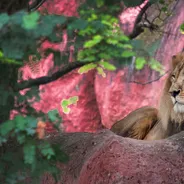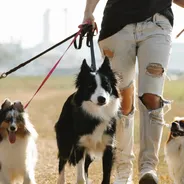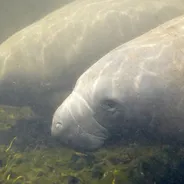David Attenborough's documentaries have broken all of us many times before, but a scene in his new Netflix show has been named the most harrowing moment so far.
The team filming the streaming service's latest documentary Our Planet should have returned with footage of walruses living happily, untouched by humans. Instead, one disturbing video showed what happens when we don't take care of planet Earth.

A segment in the second episode follows the large flippered marine mammals as they are stranded on a cliff, left confused by a combination of shrinking ice cover and their own poor eyesight.
Unaware of how high up they are, they plummet off the edge of the cliff and fall to their deaths.
Narrating the scene, Sir David describes them climbing to higher ground, stating: "They do so out of desperation not choice. Their natural home is out on the sea ice, but the ice has retreated away to the north and this is the closest place to their feeding grounds.
"Every square inch is occupied, climbing over the tightly packed bodies is the only way across the crowd - those beneath can get crushed to death. In a desperate bid to avoid the crush they try head towards the cliffs.
"But walruses' eyesight out of the water is poor, but they can sense the others down below, as they get hungry they need to return to the sea. In their desperation to do so, hundreds fall from heights they should never have scaled."
The agonising scene spurred many viewers to take to social media to share their heartbreak and encourage people to start doing something about climate change.
"Watched the first two episodes of #OurPlanet today and if the Walrus scene with them falling to their deaths doesn’t make you seriously think about what more you can do to combat climate change, nothing will. Seriously tough but crucially important watch [sic]," wrote @LFCMids.
Another Twitter user named @annarchristian added: "Can’t believe what I’ve just witnessed on #OurPlanet The walrus scene is the most heartbreaking, important wildlife footage highlighting the impact of #climatechange I implore everyone to watch it - we can’t close our eyes to the damage we’re doing to our planet!" [sic]
Commenting on the footage, Sophie Lanfear, who produced and directed the episode, told the New York Times that filming the walruses was one of the hardest things she's ever had to do.
"The walrus scenes were the hardest things I've ever had to witness or film in my career," she said. "I really wasn't prepared for the scale of death. A small group of maybe six or seven would make it down safely, and we'd all celebrate. But the vast majority do not."

She continued: "They basically walk themselves off the cliff. The walruses are used to a soft landing. Their depth perception hasn't evolved to deal with a cliff situation, nor have they evolved to work out how to get back the way they came. So it's just tragic. It's absolutely heartbreaking."
The footage has been brought under question in the media after Susan Crockford, of the University of Victoria in British Columbia, Canada, claimed the animals were more likely to have been driven over the cliffs after being chased by polar bears and described the scenes as "contrived nonsense".
Speaking to the Telegraph, she said: 'This powerful story is fiction and emotional manipulation at its worst. 'The walruses shown in this Netflix film were almost certainly driven over the cliff by polar bears during a well-publicised incident in 2017, not because they were confused by a combination of shrinking ice cover and their own poor eyesight.

"Even if the footage shown by Attenborough was not the 2017 incident in Ryrkaypiy, we know that walruses reach the top of cliffs in some locations and might fall if startled by polar bears, people or aircraft overhead, not because they are confused by shrinking sea ice cover."
However, Lanfear defended the show, saying the segment is very real and two crew members had watched the animals fall.
She said: "We filmed Pacific walrus falling from high cliffs. They were not being driven off the cliffs by the polar bears and we know this because we had two team members watching the cliffs from afar who could see the polar bears and were in radio communications with us to warn us about any bears approaching the crew closer to the walrus and the cliffs."
If anything, let's hope the scene spurs viewers to stand up to climate change and help the walruses, and the many other animals out there that need our assistance.












